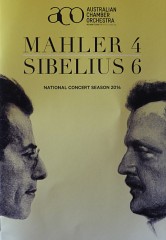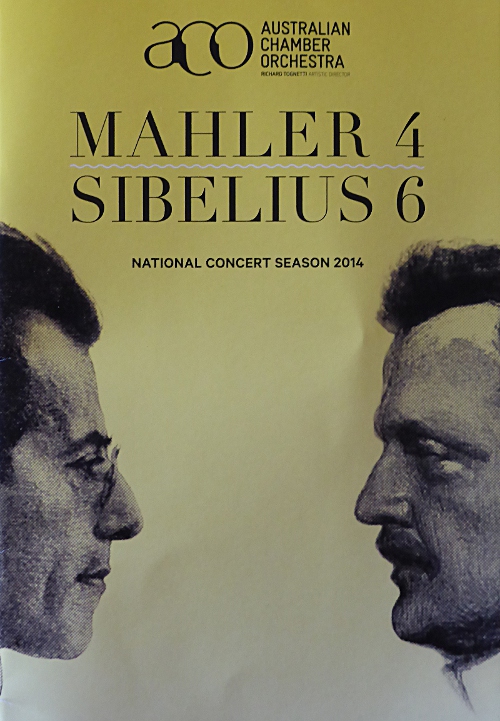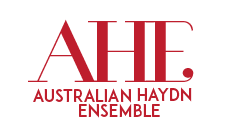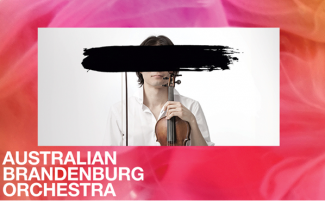Concert Review: ACO/Sibelius/Mahler
 Australian Chamber Orchestra
Australian Chamber Orchestra
Sibelius 6 and Mahler 4
City Recital Hall, Angel Place, Sydney
17 June 2014
The Australian Chamber Orchestra and director Richard Tognetti are continually exploring new territory. Two years ago they ventured into the world of large-scale symphonies with a performance of Beethoven’s Choral Symphony which was hugely successful and won Limelight magazine’s award for Best Orchestral Concert in 2012. Last year they performed Brahms’ fourth symphony and Dvořák’s cello concerto. This year they have embarked on what they describe as ‘the biggest symphonic configuration in ACO history’ with the Sibelius sixth and the Mahler fourth symphonies. These are good choices for a chamber orchestra such as the ACO which is based on a permanent core consisting only of string players. The Sibelius sixth is heavily string oriented, with the strings often subdivided, and Mahler’s fourth is the shortest and most chamber-music like of his symphonies. Nevertheless, they both represent a significant expansion of the ACO’s normal repertoire.
Probably the biggest challenge for the ACO was to assimilate the large number of supplementary players, who more than trebled the basic size of the orchestra and who originated from some eighteen orchestras in eight countries. There was much outstanding playing and, as usual, the strings were superb. Their unanimity, richness of tone and immaculate intonation lent a transparency to the sound even in passages with the full orchestra. The wind playing was also a highlight: bright, crisp and full of character. There were some excellent individual contributions, with the expressive first oboe being particularly notable. Only some occasional ensemble problems indicated they needed more time to understand Richard Tognetti’s signals. The brass writing is restrained in the Sibelius, mostly just reinforcing the tone colour during climaxes, but the players produced a warm, blended sound well suited to the transparency of this smaller-scaled performance. In the Mahler they also added convincingly to the recurring moods of plangent cynicism.
The ACO is renowned for its vitality and energy and this was evident throughout the Sibelius symphony. In the opening, however, the extroverted playing seemed at variance with the score’s piano markings and the subtle, reflective atmosphere which Sibelius appears to have had in mind when he said that the symphony ‘always reminds me of the scent of the first snow’.
For the Mahler, however, the ACO’s lively, dynamic playing was well suited to the symphony’s wide range of moods, ranging from painful outbursts to hushed reveries. Tognetti underlined these contrasts of mood and tempo and produced a characterful reading. In the second movement he intermittently left the rostrum to play the scordatura solo violin part. As usual, his playing was excellent, though the wisdom of attempting both roles is debatable. Mahler is not a composer that can be left on autopilot even for short periods, as evidenced by some wavering in the ensemble at this point. In the final movement American soprano Kiera Duffy sang the Wunderhorn song with an appropriately childlike simplicity. Her clear, well-focused sound was well suited to the music, but the balance somewhat favoured the orchestra.
The concert had a delightful prelude featuring the 1714 Guarneri violin which the ACO Instrument Fund has recently acquired. Rebecca Chan displayed the instrument in an arrangement of Sibelius’s second serenade Op 69 with a string quartet accompaniment. Chan’s playing was beautifully romantic and demonstrated that this is an excellent addition to the growing collection of first-rate instruments which the ACO is assembling.
In all, the concert was another successful venture for the ACO, which should definitely continue its annual exploration of the larger symphonic repertoire. But such works need a strong guiding hand in shaping them – not just in rehearsal – and it may be worthwhile to consider allowing Tognetti to resume his invaluable position as the orchestra leader and inviting an appropriate guest conductor for these larger-scale concerts.
Larry Turner for SoundsLikeSydney©
Larry Turner has been singing in choirs for many years – both in Sydney and London. He is an avid attendee of operas and concerts, with an emphasis on vocal music. He particularly enjoys music from both the great a capella period and the baroque – especially the lesser-known works of Bach and Handel. He has written programme notes for Sydney Philharmonia, the Intervarsity Choral Festival and the Sydneian Bach Choir and is currently part of a team researching the history of Sydney Philharmonia for its forthcoming centenary.







